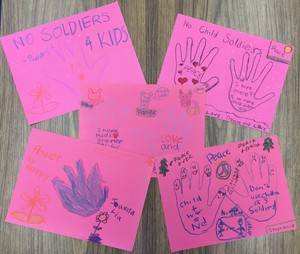 Since September 1, 2015, two member states, Kiribati and the Bahamas, ratified the Optional Protocol to the Convention on the Rights of the Child on the involvement of children in armed conflict.
Since September 1, 2015, two member states, Kiribati and the Bahamas, ratified the Optional Protocol to the Convention on the Rights of the Child on the involvement of children in armed conflict.
Kiribati ratified on September 16, declaring, “… the Republic of Kiribati has no national armed forces, and a declaration as to the minimum age of recruitment is therefore not applicable in the case of the Republic of Kiribati.” The Bahamas ratified on September 28, declaring, “The Government of the Commonwealth of The Bahamas declares that the State will permit voluntary recruitment into its national armed forces at the minimum age of eighteen and will state the general conditions of the engagement to be entered into by the recruit and a recruiting officer shall not enlist any person in that Force unless satisfied by that person that he has been given such a notice, understands it and wishes to be enlisted.”
Of note is Myanmar, which has not ratified the Optional Protocol but did sign it on September 28. While the Secretary General still lists Myanmar under the parties that recruit and use children in situations of armed conflict, hopefully Myanmar’s signing marks a positive step toward ending its recruitment and use of child soldiers. Since June 2012, Myanmar has released 646 children from its army; 93 of which have been released this year. For more information about Myanmar, click here for the Secretary-General’s report on Myanmar.
This raises the number of United Nations member states that have ratified the Optional Protocol since Presbyterians became involved in the Red Hands Campaign to 27. There are still 34 United Nations member states left to ratify. Click here for the full “Children and armed conflict” report by the Secretary-General.
Every effort counts. Keep your Red Hands coming.
Children are children, not soldiers.
The photo, by Robert Arrington, shows some of the Red Hands made by participants in the 2015 children’s summer program of First Chinese Presbyterian Church in New York City.